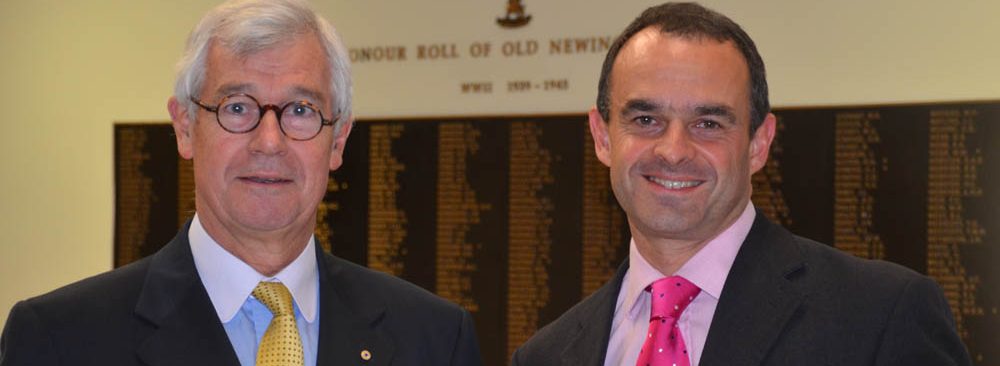A Visit from Julian Burnside AO QC
“Here in Australia, when there is stress in the community, you will find issues in the key marginal electorates have a disproportionately large voice,” proposed barrister, human rights advocate, author and recipient of the Australian Peace Prize, Julian Burnside AO QC, when he presented Protecting Human Rights in a Time of Stress, at Newington College as part of the Centre for Ethics 2012 Lecture Series.
Mr Burnside’s address, delivered in front of the 200 teachers, students and members of the public who follow the Ethics Centre series at Newington each year, began with the premise that Australia’s baseline respect for human rights is “not all that bad”.
In fact, he suggested that for many in the audience who grew up in Australia in the latter part of the 20th century under Liberal and Labor leaders (Malcolm Fraser and Gough Whitlam respectively) who endorsed the immigration policies that have shaped our richly diverse nation today, “it would be unthinkable to go back to eating spaghetti from a tin”.
But since the stress of September 11 2001, Mr Burnside feels our response to the world has changed to “dismantle the rule of law”, to a point where bureaucracy, parliament and law are blurred and no longer stand as clearly independent bodies.
“If you think about some of the things we are doing to asylum seekers in this country it is far worse than the historic, early singling out of minority groups for exclusion and isolation in 1930s Germany.”
These were very strong sentiments and provocative ideas but well in keeping with Dr Jeremy Hall’s vision for the Ethics Centre to promote serious engagement with the moral issues facing young Australians. Newington’s senior students stole the advantage to question one of Australia’s most regarded legal minds and distinguished public law practitioners. Mr Burnside was asked to respond to the role of compulsory voting in creating a situation where news polls incite extremists with words such as the “terrorist” and “illegals”. Another question elicited Mr Burnside’s take on constitutional reform in securing human rights for the future. He was clearly impressed.
The evening was riveting both for the calibre of speaker and the audience response. Our boys’ capacity to grapple with ethics, in a legal context, would have reassured the audience that young people may well have their conscience pricked by radical ideas but they can also appreciate that to seriously defend human rights in this country we need brilliant advocacy at the highest levels of politics and the judiciary.
Pam Hatfield
Director of Communications
To discover more about ethics and philosophy at Newington College, please visit the Centre for Ethics Insite.






